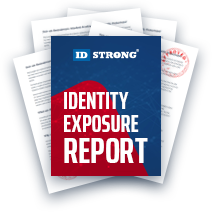What is a Reverse Mortgage Scam?
Table of Contents
- By Greg Brown
- Published: Dec 19, 2022
- Last Updated: Dec 28, 2022

The first reverse mortgage was created in 1961 by Nelson Haynes of Deering Savings and Loan in Portland, Maine. The mortgage was created to help an elderly wife stay in the home after her husband passed away suddenly. With that first loan, the fundamental tenets of a reverse mortgage were created to help homeowners 62 years or older convert a portion of the equity in their home into cash.
The percentage of Americans who feel they will never be able to retire has grown to an all-time high of 44%. In another dire statistic, nearly 25% of people over 60 said they would not last more than three months on savings alone. As a result of these alarming statistics, a growing number of seniors need to refinance. This opens them up to the dangers of reverse mortgage predators.
Reverse mortgages grew in popularity throughout the 70s as more local and personal banks offered the product. Since its introduction, the financial tool we know today has had several developmental milestones as lenders have tinkered with the financial possibilities.
Financial exploitation of the elderly has skyrocketed, with theft and fraudulent deprivation of money being a small part of the overall abuse. Older adults are excellent targets for scammers, have accumulated assets, and most live off their savings. Elders are in the habit of answering phone calls from strangers, opening junk mail, and are not proficient in online privacy.
U.S Department of Justice has created a robust response to elder abuse by raising public awareness and providing an extensive help network.
Reverse Mortgage Scams
Since the reverse mortgage products’ introduction, over one million elder adults have taken advantage of a reverse mortgage to ease their financial burden. Reverse mortgage scams involve smooth-talking criminals manipulating an elder adult. Scams include taking out a new loan or what to do with the money they just received.
Scammers use several methods to steal an older adult’s money and even their home. Reverse mortgage scams involve phony appraisals, fraudulent documentation, exorbitant fees, and outright theft.
Deed Theft
Home title theft or deed fraud is a growing problem for seniors across the United States. Criminals steal the deed to a senior’s home without their knowledge.
June Walker scrimped and saved money from her disability check to purchase a rundown home on Detroit’s east side. Once June moved in, she could not contain her excitement, running around the home clapping hands for her good fortune. Two months after moving in, June received an eviction notice. Her fraudulent “property manager” had created a fake deed and was pocketing her down payment and monthly payments. The scam has thrived, with nearly 1 in 10 homeowners in the Detroit area facing the same scam.
Criminals target the elderly for several reasons, most of which relate to the elderly, making them easy targets. Reverse mortgage scams and the payout have proven to be bigger than ever. The average American homeowner has nearly $185,000 in home equity.
Closing costs and fees are always inflated because reverse mortgage payments may not be required, leaving an opening for the scammer. Risks to the predator are low when they target the elderly. Victims are too embarrassed to report the crime for fear of losing their independence. Horrifically, the criminal is often a family member.
Family Members
According to the FBI’s crime report, Americans 60 and over were swindled out of $1.7 billion. It has been found that family members carry out 60 to 90 percent of the crimes against older Americans. Caregivers and family members will coerce the elderly target to apply for a reverse mortgage or may even impersonate the victim. Family members take out credit cards and personal loans without the knowledge of the senior family member. Detailed studies have found the elderly are swindled out of $116,000 on average.
Reverse mortgages have different documentation than regular mortgages, and predators take advantage of the complex language. Crooks often scam the elderly by taking over a power of attorney. This documentation allows the predator to access the proceeds of the loan. A recent fraud bulletin from HUD warned of a dramatic rise in power of attorney fraud among the elderly.
Scams
- High-pressure investment sales talk
- Home repair and renovation fraud
- Mortgage payment relief scams
- House flipping schemes
- Uninsured reverse mortgages disguised as Special Deals
- High-pressure Government impostor language
- Reverse mortgage charity fraud
Language to Watch Out For

Various reverse mortgage loans and new products are rolled out all the time. However, every illegal pitch to an older person always contains the same illegal language, no matter the size or type of loan. The Consumer Financial Protection Bureau (CFPB) takes stiff legal action against lenders who deceive the elderly with deceptive language and advertising.
- You won’t lose your house: Elderly homeowners can lose their homes if they do not maintain the house and keep it as their primary residence. Expenses such as property taxes, insurance, and HOA fees must be paid.
- You won’t have any costs or fees: This statement is entirely false. 1) The borrower may have to pay up to $6,000 in HECM lender fees. 2) A 2% upfront mortgage insurance premium and an annual $0.05% MIP fee. 3) $125.00 or more for HUD counseling.
- We are affiliated with the US Government: It is illegal for any lender to claim they are affiliated with the Government for a reverse mortgage.
- As a senior over 62, you automatically qualify: This statement is also completely false. 1) There must be enough equity in the home to qualify for a reverse mortgage, and the borrower must live in the home as their primary residence. 2) The borrower must prove there is enough money to pay ongoing maintenance and property expenses.
Protect Yourself From Reverse Mortgage Scams
- Understand the risks of borrowing against your property. Never sign anything you do not understand
- Speak with a trusted advisor
- Ignore unsolicited phone calls, emails, and text messages. Be wary of high-pressure sales tactics
- Sign up for Family Identity Theft Protection
- Know your rights
These simple things can help you avoid scams related to reverse mortgages. Trust your gut - as the saying goes, if it sounds too good to be true, it likely is!



















































































































